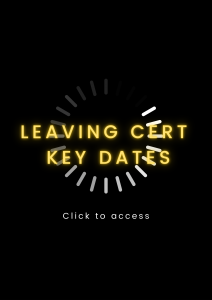Q: Today I did my first interview for a job in about ten years – and the interview was much more gruelling than I had anticipated. There were four of them in it, and they came at me from all angles. It felt like they had rehearsed some of it to see if they could catch me out: in fact, it felt like an ambush. It lasted an hour, one very long hour. I was deflated when I came out, but, as time goes by this evening, I feel I may have done reasonably well in the circumstances. I don’t really have a question for you; I just wanted to get your thoughts on it. (DD, email)
A: I generalise here, but most people tend to be negative and critical when they come out of interview – or should I say, it is rare that people coming out saying “yep, I nailed that, chalk it down.”
The first thing to remember is that they were almost certainly equally as tough on every other candidate. Everyone else probably felt ambushed too. I don’t know what kind of job you were going for, but this was one interview panel that took its job seriously. I think that’s generally a good thing, even if it felt like a relentless aerial bombardment at the time.
An interview panel that conducts the interview seriously will also carry out the post-interview discussions seriously. The discomfort you felt is likely to have been felt by some, or all, of your rivals for this job.
I am interested in the fact that you started to perk up as the day went on after the interview. Coming out of a tough interview there’s a tendency to throw the baby out with the bath water: dismissing your entire performance because of the one or two times you didn’t handle questions well.
But your interview is about the full hour. And, as you recovered your equilibrium afterwards, you likely remembered those parts of the interview where you did well.
I believe it is crucial to learn from all interviews. It is not wise to just walk away and decline to pick up something of value. The reality is that you could do a good interview, and not get the job; or a bad interview, and still get the job.
So try to do a full independent assessment of your performance. Mark yourself out of ten in the key areas – refer to the job description or job advertisement to remind yourself what those key areas were.
Another good idea is to scribble down as many of the questions you were asked as you are able to remember. You can also mark yourself out of ten for the answers you gave. In this way, you can learn for future interviews.
It is vital to feel the benefit of doing interviews. Just as a sports team seeks to identify and then eradicate its mistakes, you should be looking to improve your interview style on an on-going basis.
That’s why there really is no full substitute for doing interviews. Lights, camera, action. Hopefully you will get this job and not need to do another interview for a while, but, even if you don’t get it, treat it as a learning experience and feel the value of it next time round.
Sli Nua Careers offer CV preparation, interview training and mock interview services at their offices in Galway, Limerick, Dublin, and Ballinrobe, Co. Mayo. To get a copy of their career resource pack, email getthatjob@slinuacareers.com with resource pack in the subject line.






